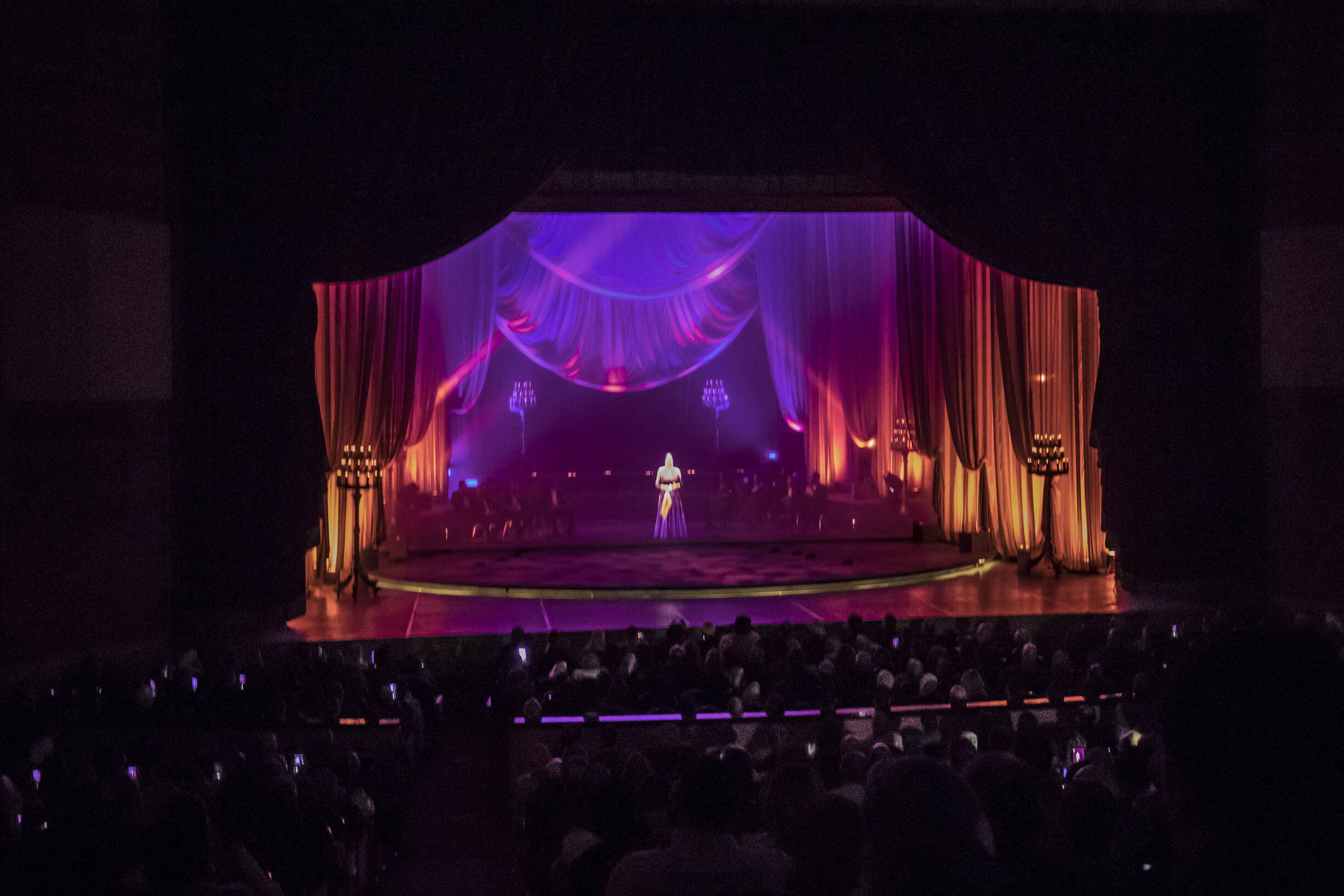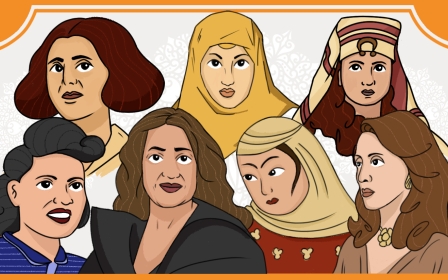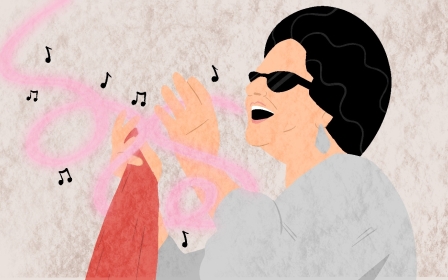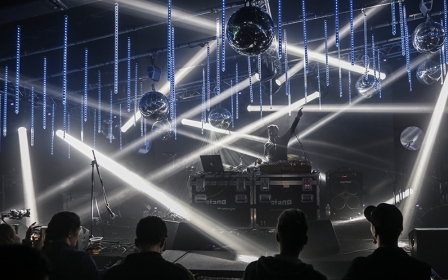Egypt: AI-generated Umm Kulthum voice sparks legal debate
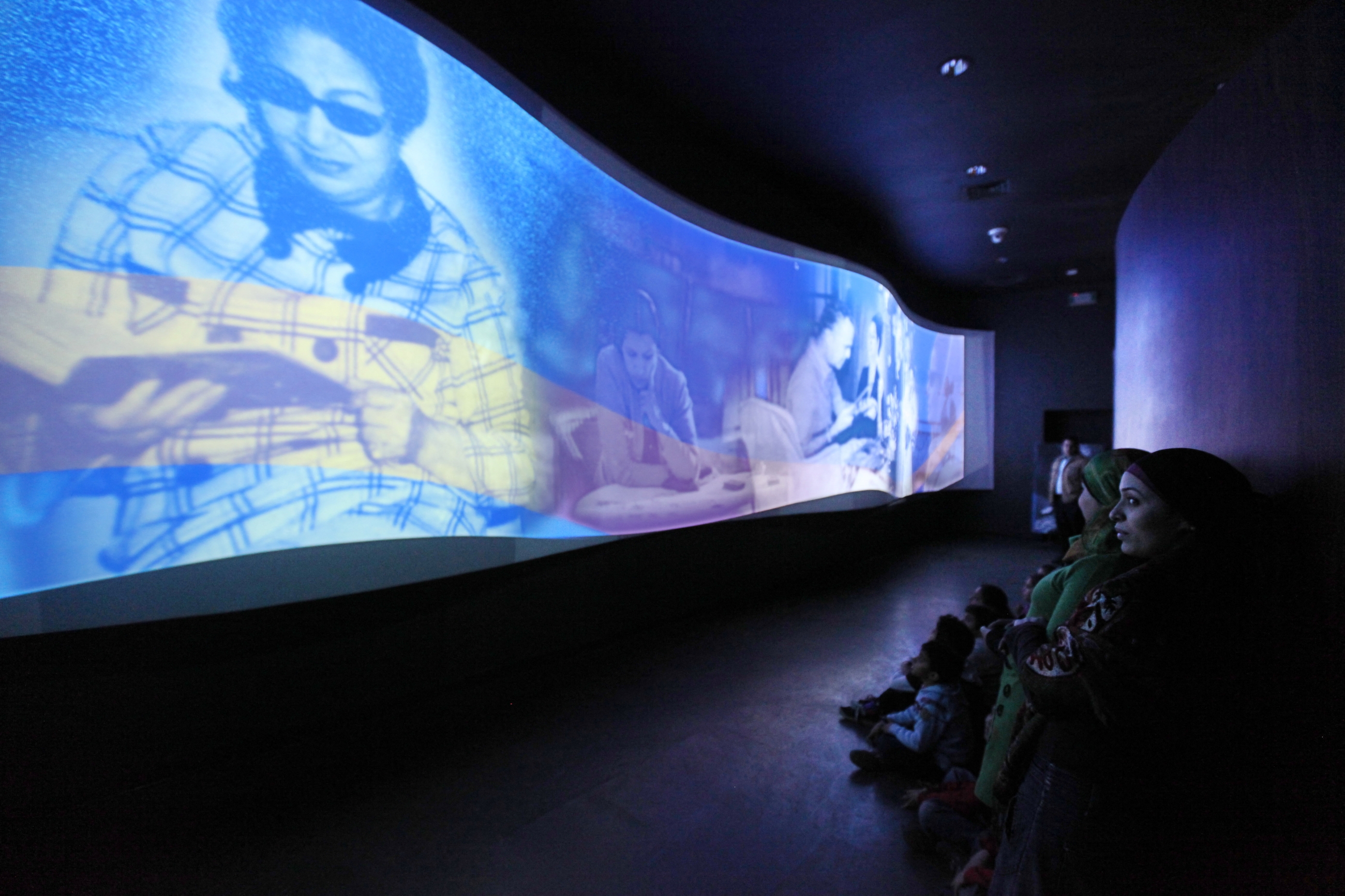
Egyptian composer and producer Amr Mostafa has found himself at the centre of an intense debate after unveiling a promotional clip on social media featuring a sample of his composition, accompanied by the AI-generated voice of the late Egyptian icon Umm Kulthum.
Mostafa posted a 32-second audio clip called Aftekerlak Eh (What I remember about you), which he composed and lyricised alongside an image that included himself and Kulthum.
He later deleted the post, but reuploaded a version on 19 May with a video featuring a burning candle on his social media pages.
New MEE newsletter: Jerusalem Dispatch
Sign up to get the latest insights and analysis on Israel-Palestine, alongside Turkey Unpacked and other MEE newsletters
Mostafa omitted Kulthum's name in the new caption and clarified that the clip had been created using artificial intelligence, shedding light on the innovative nature of the experiment.
The incident prompted mixed reactions among Egyptians, and has added to the debate about authenticity and ownership in the music industry.
Many supporters of the sample lauded Mostafa's innovation and creativity, welcoming the emergence of new content associated with an icon who is renowned as one of the best singers from the Arabic-speaking world.
Revered as a national icon, Umm Kulthum's powerful and emotive performances established her as an emblem of cultural pride, and multiple generations of Egyptians and Arabs have been captivated by her artistry.
While some users commented that they found the clip "scary" or "inauthentic", many comments were positive.
However, the clip drew sharp criticism from Mohsen Gaber, the owner of Alam El Fan, the production company that holds the rights to Kulthum's music.
In an appearance on Egyptian television, Gaber asserted his intellectual property rights to Umm Kulthum's songs and emphasised that using her voice or image - or an AI-generated version - without the consent of the licence owner was unacceptable.
'As legal personnel, we need to change old-school thinking and try to adapt with the new world of technology'
- Mohamed Agamy, legal specialist
Gaber contended that using the icon's image, voice or name to sing Mostafa's melodies, particularly before the passage of 50 years since her death - she died in 1975 - would constitute a violation of the rights of Kulthum and her heirs, as they were not yet in the public realm, according to Egyptian law.
Kulthum's granddaughter, Gihan El Desouky, also announced her disapproval. Speaking on behalf of the family on Egyptian TV, she expressed concerns that the misuse of AI technology would tarnish the legacy of her grandmother.
“We feared that the use of this technology would make her music go the way of mahraganat,” she said, referring to a genre of Egyptian folk-electronic music which originated in slums and often incorporates explicit lyrics and themes revolving around drugs and sexuality, and has gained popularity in the past decade or so.
On 23 May, Mostafa shared an update alongside the family's lawyer, Yasser Kantoush, stating that an agreement had been reached and that the family's concerns had been addressed.
Middle East Eye contacted Kantoush for comment but did not receive a response at the time of publication.
Legal ambiguity
The incident is part of a wave of AI-generated music that is trending across social media platforms and streaming sites globally. While the emergence of AI-generated content presents opportunities for musicians, creatives and innovators, it remains a legal grey area.
Mostafa's justification for the use of Kulthum's "voice" in the sample - that it was an artificially generated rendition and not the real thing - goes to the crux of the debate over AI-generated music.
In recent years there has been a constant stream of "new" music shared on social media platforms, utilising AI-generated voices of both living and deceased artists, from Abdel-Halim Hafez to Amy Winehouse.
Mostafa's clip comes amid a popular TikTok-driven trend of showcasing AI-generated voices of international artists such as Ariana Grande and Rihanna performing Arabic pop classics.
Social media users even borrowed former United States President Donald Trump's voice to artificially generate pop star Sherine’s popular heartbreak song Katar Kheyri.
However, these releases often occur without the artists' permission or involvement, and have raised alarm about the legality and ethical boundaries of such practices.
Dr Nourhan N Moussa, a legal specialist and researcher in cybersecurity, told MEE that although the breakthrough of artificial intelligence is "vital in all industries", the rapid rate of development has been unprecedented for legislators.
As with the case of Amr Mostafa's sample, the legal implications are not solely connected to the technology itself, but rather the infringement of rights associated with an individual's name and intellectual property.
'The development of the algorithms in this area of technology is extremely fast, and there is no legal framework in this area without ambiguity in the laws or conventions'
- Nourhan N Moussa, legal specialist
"The development of the algorithms in this area of technology is extremely fast, and there is no legal framework specifically around these developments without ambiguity in the laws or conventions," Moussa stated.
As AI progresses at a remarkable rate, there is a substantial divide between lawmakers and software developers. The issue becomes more complex when considering the balance between fostering creativity and innovation while protecting the rights of individuals.
Moussa added: "These technological advancements are made for the sake of social welfare, so the relevant laws should be going in the same direction."
Recognising the importance of giving credit to innovators and artists, legislators are calling for a comprehensive legal framework that acknowledges both breaches and protection of rights.
"We actually are encouraging innovation, we encourage creativity, but we have to respect the human rights and ownership laws," said Mohamed Agamy, a legal specialist and managing partner at Links & Gains, a Cairo-based law firm.
"We, as legal personnel, need to change the routine, old-school thinking and try to adapt to the new world of technology. The virtual world is becoming greater than the physical one."
This article is available in French on Middle East Eye French edition.
Middle East Eye delivers independent and unrivalled coverage and analysis of the Middle East, North Africa and beyond. To learn more about republishing this content and the associated fees, please fill out this form. More about MEE can be found here.


